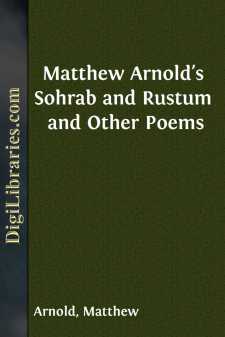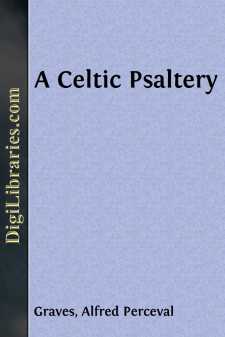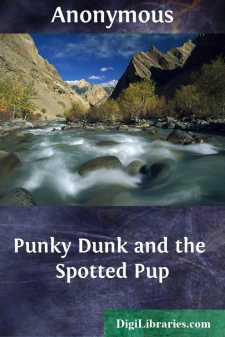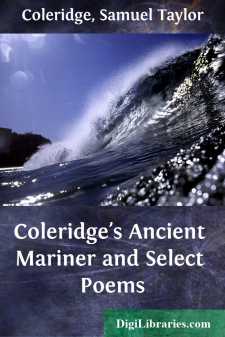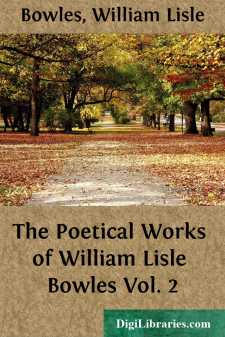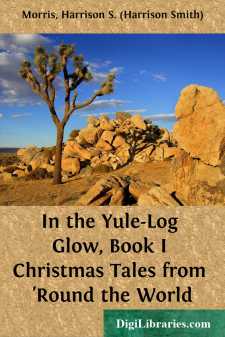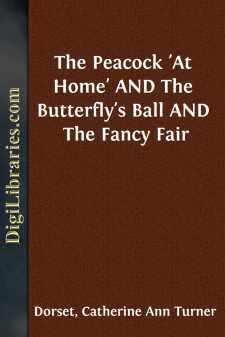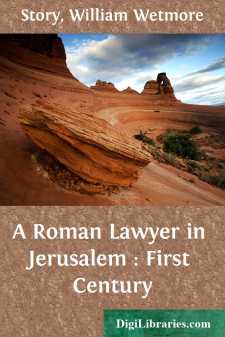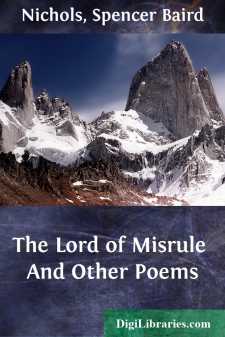Poetry Books
Sort by:
by:
Matthew Arnold
INTRODUCTION A SHORT LIFE OF ARNOLD Matthew Arnold, poet and critic, was born in the village of Laleham,Middlesex County, England, December 24, 1822. He was the son of Dr.Thomas Arnold, best remembered as the great Head Master at Rugby andin later years distinguished also as a historian of Rome, and of MaryPenrose Arnold, a woman of remarkable character and intellect. Devoid of stirring incident, and,...
more...
THE ISLE OF THE HAPPY (From the Early Irish) Once when Bran, son of Feval, was with his warriors in his royal fort, they suddenly saw a woman in strange raiment upon the floor of the house. No one knew whence she had come or how she had entered, for the ramparts were closed. Then she sang these quatrains of Erin, the Isle of the Happy, to Bran while all the host were listening:A branch I bear from...
more...
by:
Anonymous
Punky Dunk on a day in the middle of MayLooked around like a wise little cat,And he said with surprise: "Can I trust my own eyes?Well, what do you know about that?" For a wagon of blue, with a man in blue, too,At the sidewalk was just backing up.And the man brought a crate that was heavy of weightAnd inside was a gay spotted pup. Now Punky felt hurt as he gazed very pertAt the gay spotted pup...
more...
1. How, my dear Mary,—are you critic-bitten (For vipers kill, though dead) by some review, That you condemn these verses I have written, Because they tell no story, false or true? What, though no mice are caught by a young kitten, _5 May it not leap and play as grown cats do, Till its claws come? Prithee, for this one time, Content thee with a visionary rhyme. 2. What hand would crush...
more...
I. THE BEGINNINGS Coleridge lived in what may safely be called the most momentous period of modern history. In the year following his birth Warren Hastings was appointed first governor-general of India, where he maintained English empire during years of war with rival nations, and where he committed those acts of cruelty and tyranny which called forth the greatest eloquence of the greatest of English...
more...
The poetry of each age may be considered as vitally connected with, and as vividly reflective of, its character and progress, as either its politics or its religion. You see the nature of the soil of a garden in its tulips and roses, as much as in its pot-herbs and its towering trees. We purpose, accordingly, to compare briefly the poetry of the past and of the present centuries, as indices of some of...
more...
THE THREE KINGS OF COLOGNE. A CHRISTMAS TALE FROM AN OLD ENGLISH CHRONICLE. (Written by John of Hildesheim in the Fourteenth Century.) Here followeth the manner and form of seeking and offering; and also of the burying and translations of the three Holy and Worshipful Kings of Cologne: Jaspar, Melchior, and Balthazar. Now when the Children of Israel were gone out of Egypt and had won and made subject...
more...
TheButterfly’s Ball and the Grasshopper’s FeastsExcited the spleen of the Birds and the Beasts:For their mirth and good cheer—of the Bee was the theme,And the Gnat blew his horn, as he danced in the beam;’Twas humm’d by the Beetle, ’twas buzz’d by the Fly,And sung by the myriads that sport through the sky.The Quadrupeds listen’d with sullen displeasure,But the tenants of Air were enraged...
more...
A ROMAN LAWYER IN JERUSALEM Marcus, abiding in Jerusalem,Greeting to Caius, his best friend in Rome! Salve! these presents will he borne to youBy Lucius, who is wearied with this place,Sated with travel, looks upon the EastAs simply hateful—blazing, barren, bleak,And longs again to find himself in Rome,After the tumult of its streets, its trainsOf slaves and clients, and its villas coolWith marble...
more...
THE LORD OF MISRULE “On May days the wild heads of the parish would choose a Lord of Misrule, whom they would follow even into the church, though the minister were at prayer or preaching, dancing and swinging their may-boughs about like devils incarnate.”—Old Puritan Writer. A LL on a fresh May morning, I took my love to church, To see if Parson Primrose were safely on his perch. He scarce had...
more...


